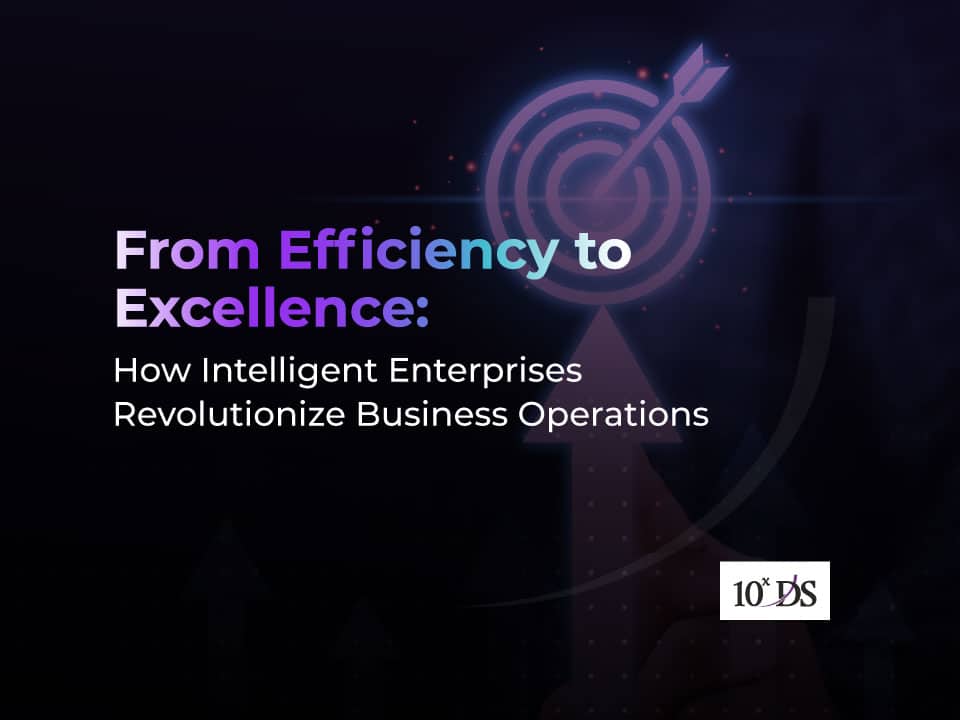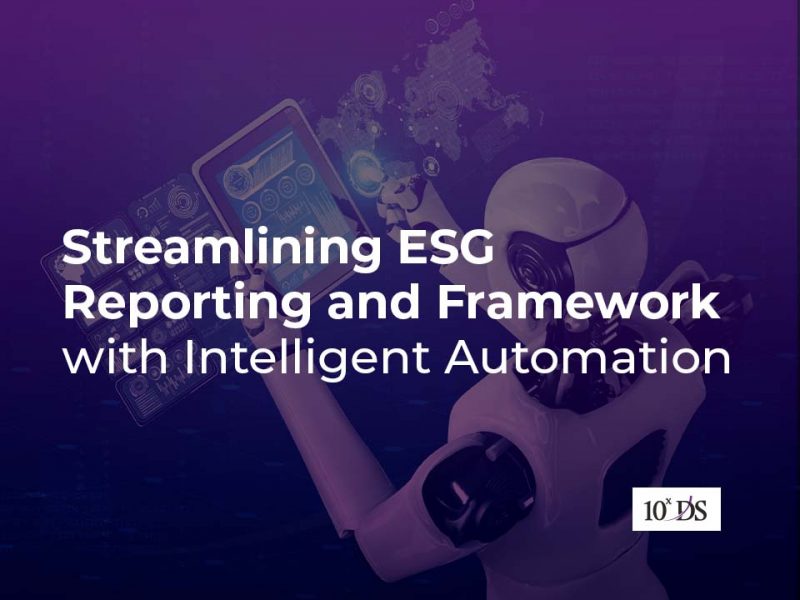
From Efficiency to Excellence: How Intelligent Enterprises Revolutionize Business Operations
An intelligent enterprise is a term used to describe an organization that leverages advanced technologies such as artificial intelligence (AI), machine learning, data analytics, and automation to transform and optimize its business operations. These technologies are integrated into various aspects of the enterprise, including processes, systems, and decision-making, to drive efficiency, innovation, and competitiveness. Key features of intelligent enterprises are:
- Automation, AI and machine learning algorithms
- Data analytics
- Agility and responsiveness.
- Collaboration and connectivity
Business operations refer to the activities, processes, and tasks that an organization undertakes to produce goods or deliver services to customers. It encompasses various functional areas such as procurement, production, inventory management, sales, marketing, customer service, and more. The ability to accomplish tasks and processes with minimal waste of resources (time, effort, money) while maximizing output and quality is key for any business. Efficiency in business operations is critical for cost reduction, productivity improvement, quality enhancement, speed and responsiveness, customer satisfaction, and scalability. By focusing on efficiency, businesses can optimize their processes, maximize resource utilization, and achieve better overall performance, leading to improved competitiveness and long-term success. Business operations before the rise of intelligent enterprises were characterized by manual processes, limited data insights, siloed systems, reactive decision-making, and slower adaptation to change. The introduction of intelligent technologies and the transformation into intelligent enterprises have addressed these limitations and unlocked new possibilities for efficiency, innovation, and competitiveness.
Automation
Intelligent enterprises leverage advanced technologies such as artificial intelligence and machine learning to automate repetitive and manual tasks. This automation increases operational efficiency by reducing errors, minimizing manual effort, and enabling faster processing. It allows businesses to streamline their workflows, improve productivity, and allocate resources more effectively.
Data-driven decision-making
With the vast amounts of data available today, intelligent enterprises harness the power of data analytics to extract valuable insights. By analyzing customer preferences, market trends, and operational data in real-time, businesses can make informed, data-driven decisions. This empowers organizations to optimize processes, identify growth opportunities, and enhance customer experiences based on a deep understanding of their needs.
Enhanced agility and responsiveness
Intelligent enterprises are equipped with AI-based forecasting and predictive analytics capabilities, enabling them to anticipate changes in the market and respond swiftly. By proactively adapting strategies, products, and services, businesses can stay ahead of the competition, mitigate risks, and seize emerging opportunities. This agility allows organizations to maintain a competitive edge in rapidly evolving industries.
Improved customer experiences
Intelligent enterprises leverage AI and machine learning to personalize and enhance customer experiences. By analyzing customer data and behavior, businesses can deliver tailored recommendations, offers, and support. This personalization fosters customer loyalty, satisfaction, and engagement, ultimately driving business growth and retention.
Streamlined collaboration and connectivity
Intelligent enterprises leverage digital technologies and platforms to enable seamless collaboration and connectivity across departments, partners, and customers. Cloud-based systems, digital ecosystems, and collaboration tools facilitate real-time communication, information sharing, and cross-functional collaboration. This streamlined collaboration enhances teamwork, accelerates decision-making, and fosters innovation within the organization.
Workforce transformation and upskilling
The implementation of intelligent technologies inevitably transforms the workforce. While automation may replace certain repetitive tasks, it also creates new opportunities that require advanced technical skills and problem-solving abilities. Intelligent enterprises invest in reskilling and upskilling programs to ensure their workforce can adapt to the evolving demands of the digital era. This not only empowers employees but also prepares the organization for future growth and competitiveness.
Conclusion
The impact of intelligent enterprises on business operations is evident, and the numbers speak for themselves. According to a recent survey conducted by XYZ Research Group, organizations that have embraced intelligent technologies have witnessed significant improvements. The study revealed that these enterprises experienced an average reduction of 35% in operational costs and a remarkable 50% increase in productivity. Additionally, a staggering 90% of surveyed executives reported enhanced decision-making capabilities and faster response times due to the adoption of intelligent enterprise solutions. These statistics validate the transformative power of intelligent enterprises in driving efficiency, cost savings, and overall business performance. As we move forward, it is clear that intelligent enterprises will continue to revolutionize and reshape the landscape of business operations, offering organizations unparalleled opportunities for growth and success.
Talk to our experts to know more.


